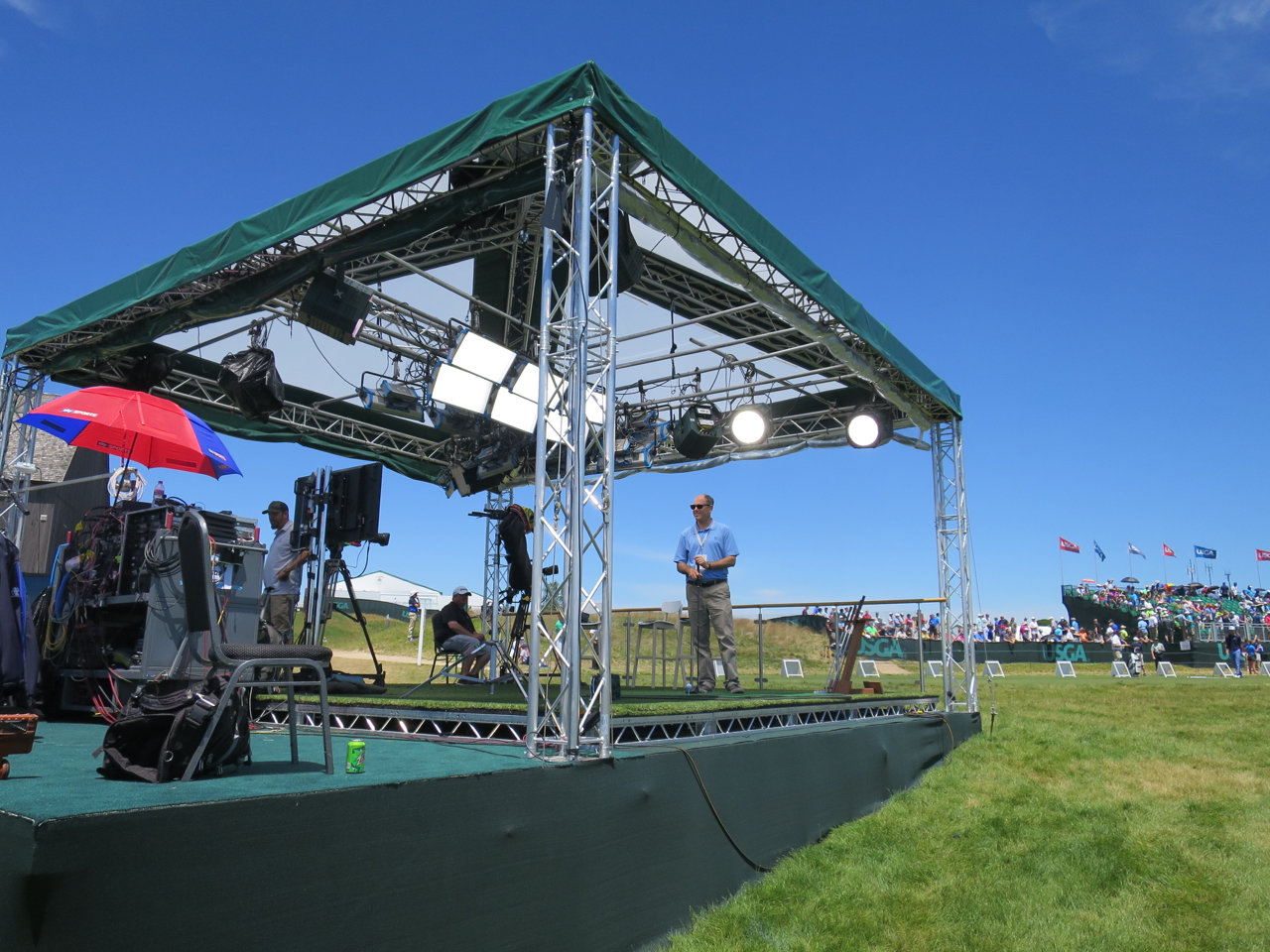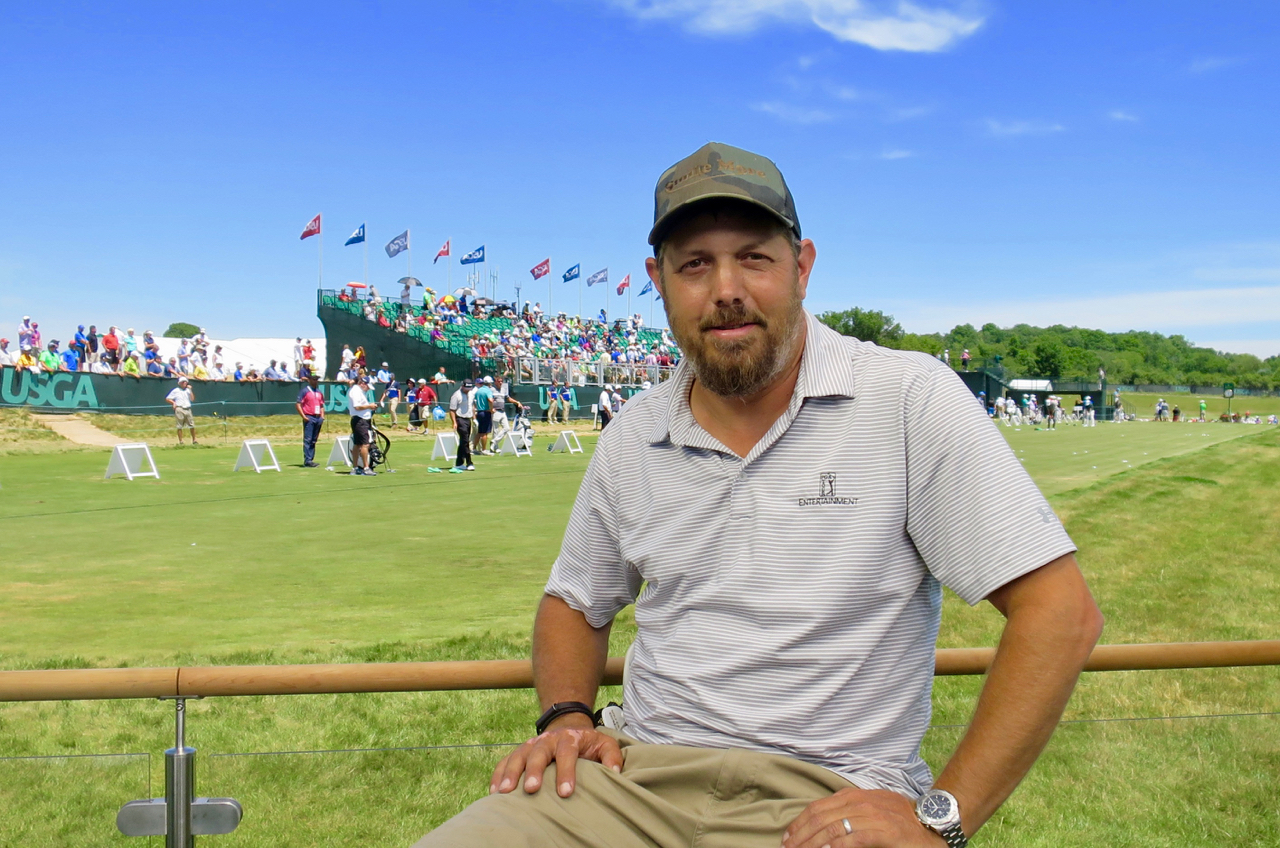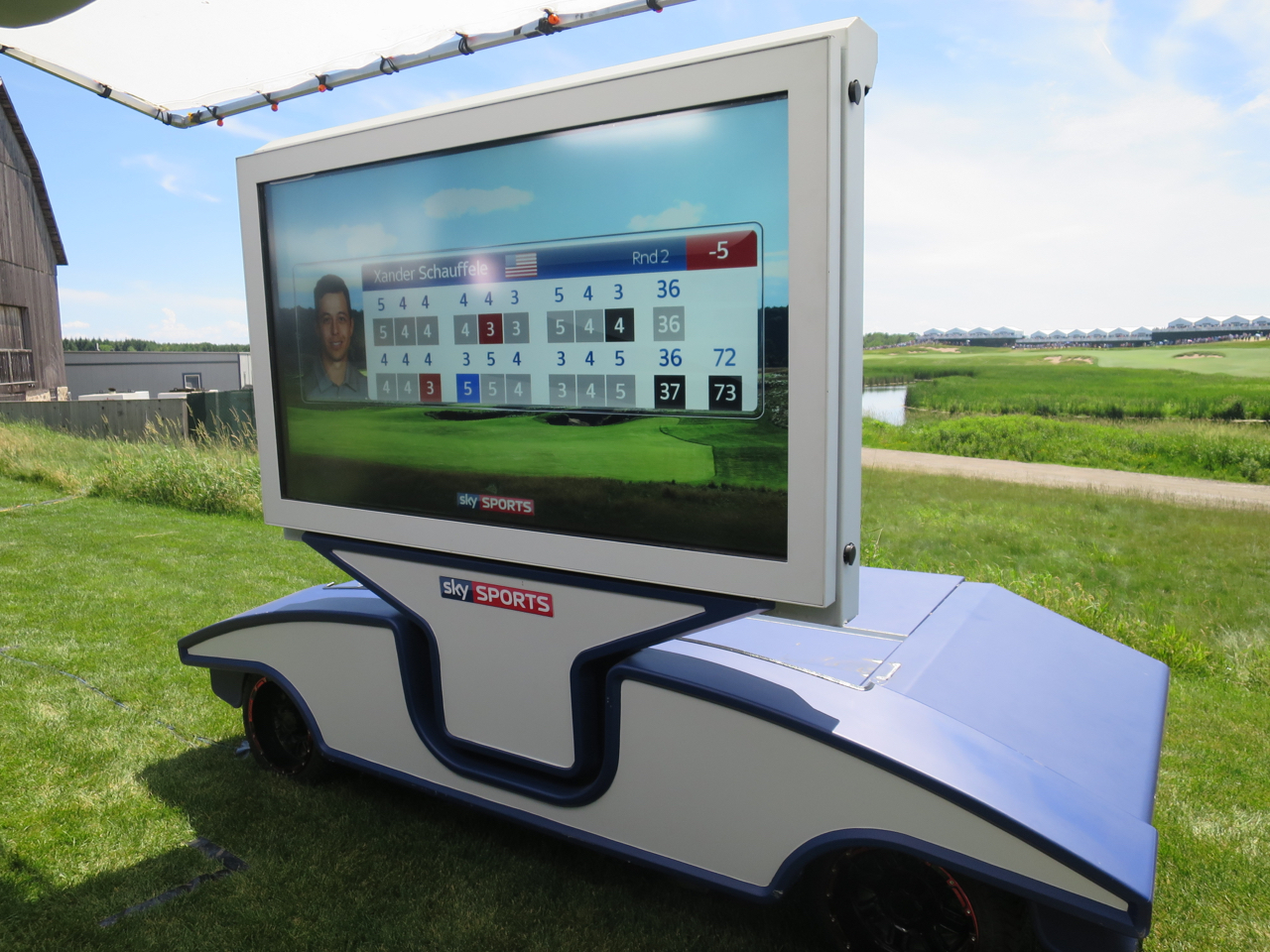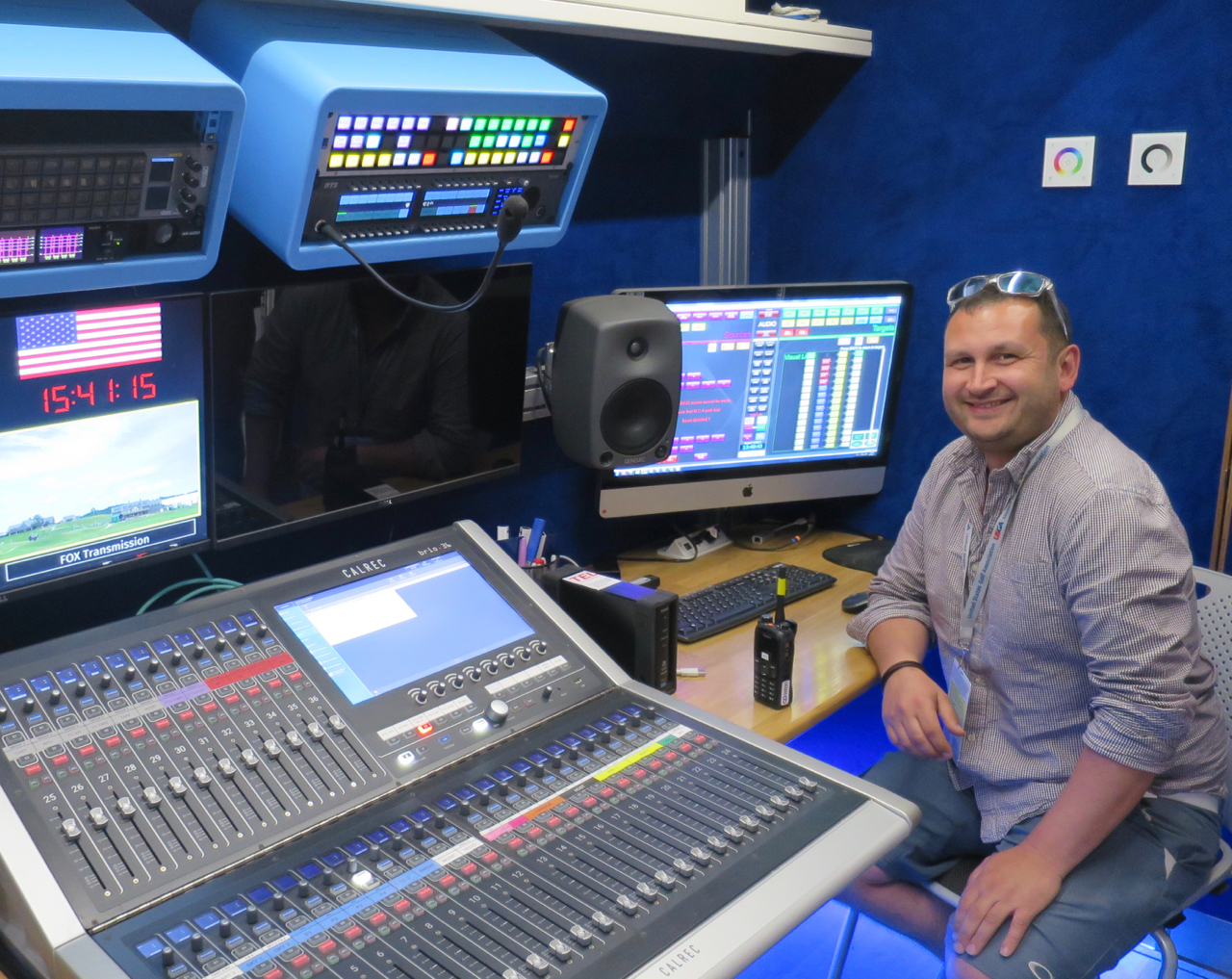Live From the U.S. Open: Sky Sports Open Zone Makes Major U.S. Debut; Telegenic Builds New Sky Cart
Telegenic T-Wiz gets technical overhaul; NEP Chromium at center of golf coverage
Story Highlights
Sky Sports is once again on hand at the U.S. Open golf championship, this year being played at Erin Hills in Wisconsin, but its operations have been improved, thanks to the U.S. Open debut of the Open Zone and two innovations from Telegenic: a new Sky Cart touchscreen display and an upgraded infrastructure for the T-Wiz OB van, which plays a central role in Sky’s 34 weeks of golf coverage in the U.S. And NEP is once again at the center of the action, with its Chromium unit handling production of Sky Sports coverage that makes use of various camera and audio signals from the Fox Sports production.

The Open Zone set offers maximum flexibility for the Sky Sports production team.
The Open Zone, a small open-sided studio located next to the practice range, provides three positions for the weekend: a seated interview position with the range as a backdrop; a practice area with shot tracking, where golfers and commentator Butch Harmon can demonstrate shots; and an area for the touchscreen system to be used for analysis. The Open Zone made its debut at last year’s Open Championship at Royal Troon and was used stateside at the Players Championship at TPC Sawgrass last month.
“It’s a good innovation and a lot more engaging than just being in a studio,” says James Clement, head of operations, Sky Sports. “You can see Butch play rather than just sit in a chair.”

Travis Schwarz in the Open Zone set
Travis Schwarz, lighting director for U.S.-based Sky Sports productions, says the Open Zone is the site of Sky’s 30-minute opening show, closing show, and about five or six inserts with one or two demos during the day. A translucent roof allows more natural light to enter the tent, he notes, adding that there is loads of flexibility to move around and change things up.
“It was built with three sets by design,” he points out. “Sky Sports has always been big on innovation, and everyone else follows behind.”

Sky Sports has a new Sky Cart for its U.S.-based event coverage.
Clement says the new cart with touchscreen was created with the input from talent and staffers. Telegenic was tasked with turning that vision into reality, and the result is a cart that has a 72-in. screen with 5,000 nits of brightness, can roll around to various standup interview positions, and has hydraulic jacks for improved stability and a screen that can retract to the center of the cart to provide additional stability in motion.
“The center of mass is as low as possible,” Clement explains. “We tried to build something that works for everyone, and it flipped from being an R&D piece to something that is business as usual.”
The new system is only in the U.S., but the Sky Sports team in the UK is in a better position to handle maintenance on the current system.
The bigger news from Telegenic is the revamped infrastructure for the T-Wiz remote-production trailer. T-Wiz, which debuted last year, houses a control-room area that can cut a complete show for lower-level events (at the U.S. Open, it is handling graphics duty), a comfortable green room for talent, and comfortable commentary positions that replace traditional office trailers. The new technical infrastructure is based on a Riedel Mediornet 10-Gbps decentralized routing infrastructure, multiviewer, and a Lawo VSM control system, and the combination gives the truck much-improved flexibility and firepower.

Telegenic’s Simon Foster inside the T-Wiz audio area
“The biggest improvement is the Mediornet decentralized router, as now the Sky Cart, Open Zone, T-Wiz, and Chromium are all part of the same router and any signal is available to anything,” says Simon Foster, deputy head of audio, Telegenic. “The support we received from Riedel was fantastic, as they helped us set up and commission it. This is the right router for the right job, and decentralized routers, I think, are the way forward.”
Audio also took a big step forward with a move to a Dante network: the single network handles all the wireless IFB and commentary systems. The Dante network is also set to DHCP so that it automatically assigns IP addresses to devices like radio mics. That means that people in the field don’t need to worry about tracking down IP addresses.
“And, with the push of a button,” notes Foster, “we can get the commentary position set up in 57 seconds.”
The Lawo VSM control system also greatly improves operations. It gives Foster complete control over all devices on the network, and control panels can be personalized and quickly reset for a new user.
“People can build the router panels the way they want, and that makes it simpler for people that might not be familiar with running extremely complex networks,” says Foster, adding, “I can also run the Sennheiser mics via remote-control software, so I can scan the available spectrum and set a mic to open spectrum from here, which is great.”
Other new gear includes a Focusrite RedNet 6 IP-to-MADI bridge, RTS Telex Omneo keypanels, Wohler audio monitoring, and a Calrec Brio audio console.
“With two fibers, we can connect the Brio to the Calrec Apollo console in Chromium and share resources with each other,” says Foster. “And, because it is on the Mediornet network, it once again has every audio source anywhere on the network available.”
And one of the new favorites? The Cedar DNS8 eight-channel noise-reduction system.
“It has an automatic learn function: you can open the mic to plus-10, hit learn, and then it gets rid of wind or generator noise,” says Foster. “Then you just adjust the thresholds. It is our favorite piece of gear to get rid of generator noise. There are generators right next to the T-Wiz commentary positions, and you can’t hear them.”
